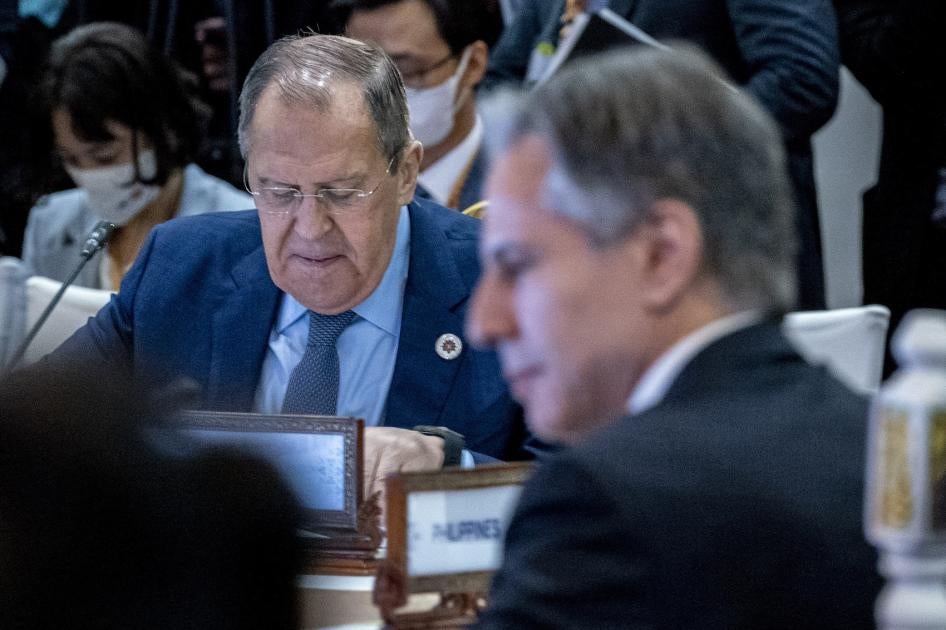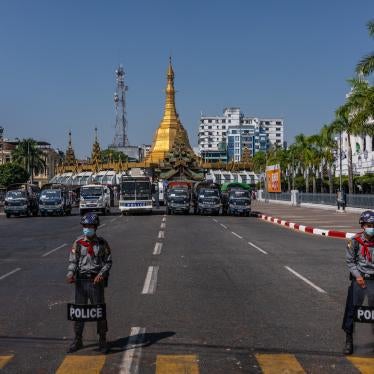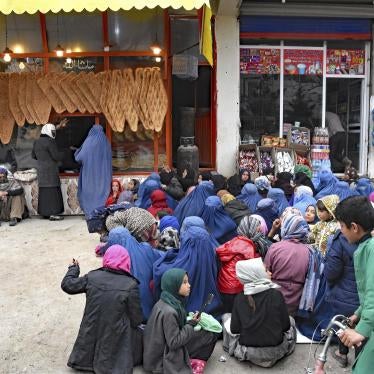Foreign ministers of Group of Twenty (G20) countries are meeting in New Delhi on March 1-3. US-China tensions and Russia’s war in Ukraine loom large over the meetings, which will be attended by Russia Foreign Minister Sergey Lavrov, China Foreign Minister Qin Gang, and United States Secretary of State Antony Blinken. Given the highly charged backdrop, are agreements on any issue even possible?
At first glance, you might think not. Governments don’t often agree to statements critical of their own records, so the G20, in adopting any joint communiques, will be silent on many vital issues, including Russia’s war crimes in Ukraine, China’s crimes against humanity in Xingang, Saudi Arabia’s abuses in Yemen, or the US government’s own record on racial justice and immigrants’ rights.
The same goes for India. While visiting democratic leaders may privately raise concerns about India’s steeply worsening human rights record, few will publicly shame their host.
However, some possibilities remain. The G20 has several areas of potential agreement, including measures to address global food security, climate change, and the plight of countries struggling with unmanageable debt or debt defaults.
It’s also conceivable, though admittedly unlikely, that G20 members could agree on stronger measures against Myanmar’s military junta, whose widespread abuses have plunged it into diplomatic isolation.
Another conceivable area of agreement is Afghanistan. After all, international reactions to the Taliban’s increasingly harsh restrictions on women’s rights have been unanimously condemnatory.
The Taliban literally have no defenders on this topic. Saudi Arabia, Iran, and the rest of the 57-nation Organisation of Islamic Cooperation (OIC) and its International Islamic Fiqh Academy have criticized or expressed concerns, as have almost every member of the G20 – including Argentina, Brazil, Mexico, and South Africa – and 12 of 15 members of the United Nations Security Council.
Even Russia and China have agreed to statements criticizing Taliban restrictions on women’s education; both have privately raised concerns with Taliban leaders and neither opposed a strong group statement by Security Council members in December 2022. Probably no country since apartheid South Africa in the 1980s has been more diplomatically isolated on a major human rights issue. This is a stunning level of unanimity in today’s polarized world. But any hope for significant changes in the Taliban’s position will necessitate maintaining it. G20 countries should work to reach a common position condemning the Taliban’s decisions and urging them to reverse course.










